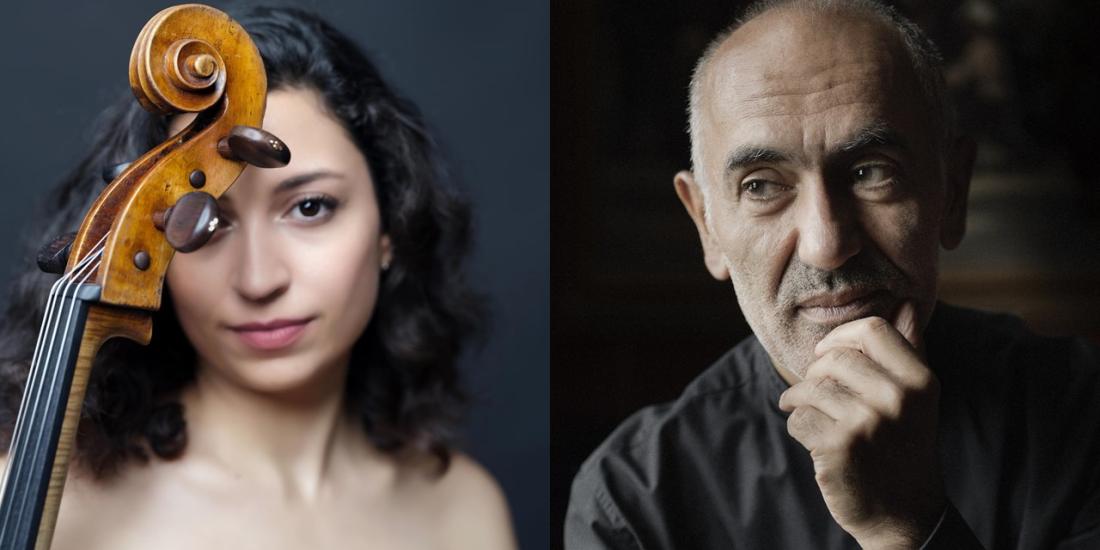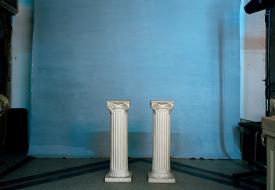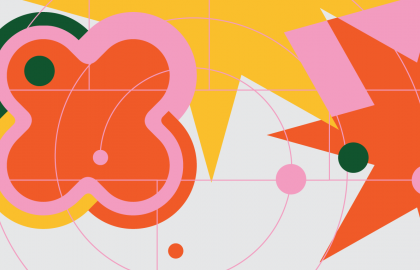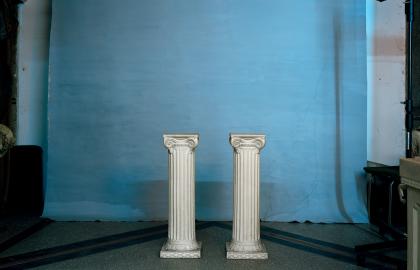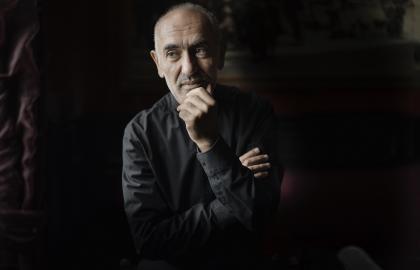How did your musical and personal encounter come about?
Abdel Rahman: We met Astrig in 2016, in Nîmes, during a carte blanche where young musicians were also invited. As we played together, we discovered that our sensitivities matched.
Astrig: We got along very well right away, in both human and musical terms. As my mother was born in Lebanon, we found we had a lot in common. I also liked our approach to the works we played. We then took part in a concert for Lebanon, following the explosions in the port of Beirut on 4 August 2020. It was very moving, especially since we were playing Abdel Rahman's compositions together for the first time. I discovered his world and I was very moved by the melodious quality he gave to the cello in his music.
How would you describe this sensitivity that brings you together?
Abdel Rahman: We share a playing style based on emotion, where the intellect supports the affect and not the other way a round. Our way of developing the vocality of music is also very similar. I was born into a family where the voice was very important; my mother was a professional singer and my father a composer.
Astrig: Singing has always been present in my family and my work. I consider it an extension of the cello. I have always admired Abdel Rahman, who is a great pianist. He has a highly developed sense of melody. His sensitivity is based on a great softness, a sense of harmony, without vulgar expression. There is modesty and refinement in his playing and music. I also like his open-mindedness.
How did you put together the programme for this recital linked to the Alexandria: Past Futures exhibition?
Abdel Rahman: We were asked to find a balance between Near Eastern- and Western-inspired works. So we called upon our respective traditions. Astrig suggested Armenian melodies that could be found in Egypt. Komitas was a 19th century priest and musician who collected Armenian melodies and lived in Alexandria - which was part of the Ottoman Empire.
Astrig: There have been exchanges between Armenia and Egypt for a long time. Before the time of Komitas, many Armenians lived in Egypt. For example, there were great Armenian oud makers and oud players. Komitas is vitally important because he collected the melodies of religious minorities (not just Armenian but also Kurdish and Syriac) that disappeared during the genocide of 1915. This shows us that, even if monuments or cities are destroyed, music does not die, if we continue to play it.
Which Armenian melodies have you chosen?
Astrig: They are pieces harmonised by Komitas that deal with Anatolian nature. In reality, they are modest metaphors illustrating human love. I have arranged these vocal pieces for the cello and piano, but I also sometimes sing them. I will also play the Suite pour Sevane, a suite of Armenian folk melodies that I composed from the works of Komitas, Krikor Naregatsi and melodies I heard during my childhood. Sevan is the name of the largest lake in Armenia, but also an androgynous first name that is very symbolic in that country.
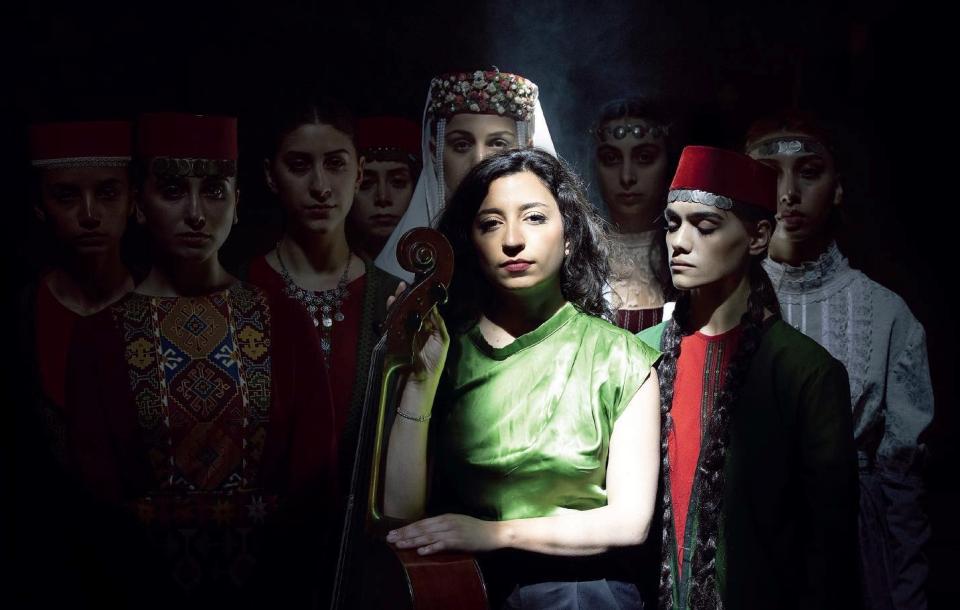
A cultural encounter is not a miracle if it comes from a willingness to be open to others.
Is there also a strong cultural link between Lebanon and Egypt?
Abdel Rahman: Beirut and Alexandria are culturally very close. In Lebanon, when I was a child, we could listen to Egyptian music and watch Egyptian films. Artists like Umm Kulthum performed there. For this recital, I was inspired by Mohammed Abdel Wahab, a highly respected Egyptian composer and singer whom I was lucky enough to meet when I was five years old. I arranged one of his most famous songs for piano, which reminds me of a lied from Schubert's Winter Journey. I also produced variations for piano on a popular Egyptian tune that I like for its simplicity and its asymmetry - the missing bar gives it its full flavour and expressiveness. We have also chosen pieces for cello and piano composed by my father and myself, which reflect the musical production of this part of the world.
Astrig: We have never performed Abdel Rahman's father's works together before. I find it very moving to have them on the programme.
What about the choice of western classical pieces?
Abdel Rahman: Beethoven's music has no borders. It offers an openness towards the human. As such, it has a place in the programme. The Fourth Sonata for Cello and Piano is a masterpiece in which the heart blossoms towards transcendence. Rachmaninov's sonata is another masterpiece for cello and piano. Russian romantic composers such as Borodin, Rimsky-Korsakov and Tchaikovsky are themselves oriental. These musicians are very popular in Lebanon because they share common sensitivities. It is music of feeling, of emotion, writing that magnifies the sounds of the cello and the piano.
Astrig: With Rachmaninov, the writing is often very much for the piano. But when we play this sonata with Abdel Rahman, there is a clarity, a very clear and sensitive discourse.
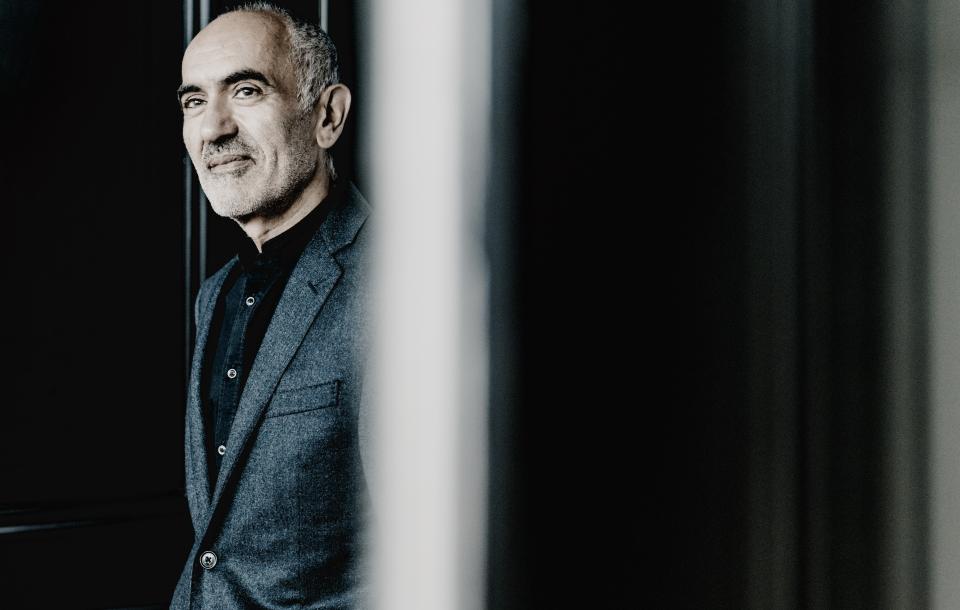
If we consider the many cultural exchanges and the universality of certain music, it seems that we too often tend to lock East and West into fixed notions.
Abdel Rahman: That's true. At the same time, there are sometimes differences in mentality between people of the same ethnicity, country or even family. If some people cannot communicate, it is not always the result of a cultural difference. When we think that communication is possible between totally different countries (let's take those young Asians who play European music wonderfully as an example), it means that any encounter is possible. A cultural encounter is not a miracle if it comes from a willingness to be open to others.
What message would you like to convey to the public in this recital?
Astrig: As classical musicians with many different backgrounds, we consider it essential to create a link with more personal works. I believe that this artistic approach is linked to the sense of sharing that is very present in Near Eastern cultures. It is a very honest programme that we want to bring to the Centre for Fine Arts, a place full of history which evokes many memories for Abdel Rahman and myself.
